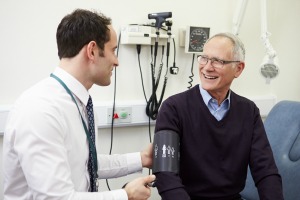
Helping Your Loved One Recover After a Cochlear Implant
At one point, cochlear implants were mostly just considered for young children, but it has been recently determined that a cochlear implant may be a great way to improve the quality of life for a senior citizen as well. They don’t only have to be offered to children with hearing loss. Your loved one may need some speech therapy services after the surgery if they have had profound hearing loss for some time.
When a Cochlear Implant May be Right for An Elderly Loved One
Your loved one might be a great candidate for a cochlear implant if they:
- Has struggled to receive much help from regular hearing aids and still struggles with hearing despite using them.
- Has moderate to severe hearing loss in both ears.
- Is in good enough health to undergo surgery and recovery.
Four Benefits of Receiving a Cochlear Implant
If your loved one has had profound hearing loss for a long time, there may be things that he has stopped doing and will be able to start doing and enjoying again. For each person, the results are different with some enjoying great improvements and others seeing smaller improvements in some areas of hearing but not all.
Use a telephone for more than just texting. A cochlear implant can make it so your loved one can make and receive phone calls without struggling to hear the person on the other side of the call.
Enjoy television when he can see a person’s face. He might still use closed captioning, but he will be able to hear emotions expressed verbally as well as some other sounds connected to watching a TV show (like music or background sounds).
Hear sounds he hasn’t heard for a long time. Your loved one might pick up on the sound of a door opening, footsteps in the hallway, or birds singing outside of his window.
Understand different voices better. He may still need to do some lip reading or not be able to hear perfectly in all environments but his hearing of voices of different pitches will improve.
Cochlear Implant Recovery
After surgery, your loved one will need to care for the incision area by caring for the stitches and changing the dressing. He might need some assistance if he is unable to reach that area of his head or see the surgery sight. He will need to wait a day or two before showering or getting the area wet.

Speech Therapy Simpsonville SC – Helping Your Loved One Recover After a Cochlear Implant
Once the surgical sight is healed, your loved one will need to head back to his audiologist to have the implant programmed and learn how to use the external processor on the ear. Your loved one will have a series of appointments where he will work with his audiologist to understand the sounds and make adjustments as needed. This process may take six months or more as your loved one and his doctor determines the best programming for his implant.
Some Adults Will Need Speech Therapy
Your loved one might go to a clinic but they can also have a professional speech therapist come to the home to help with speech therapy. During speech therapy, they’ll learn how to adjust their voice and practice certain sounds that they may not have been using for several decades.




